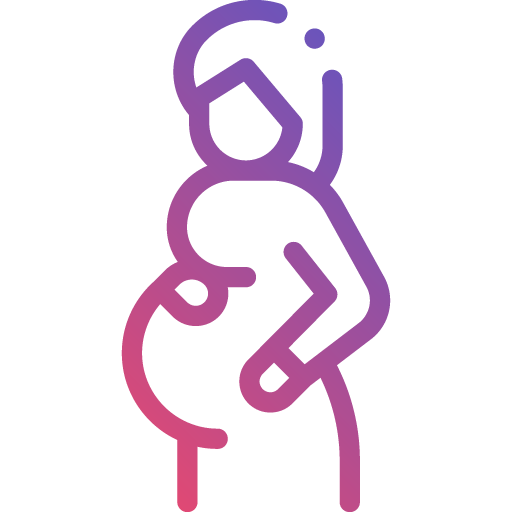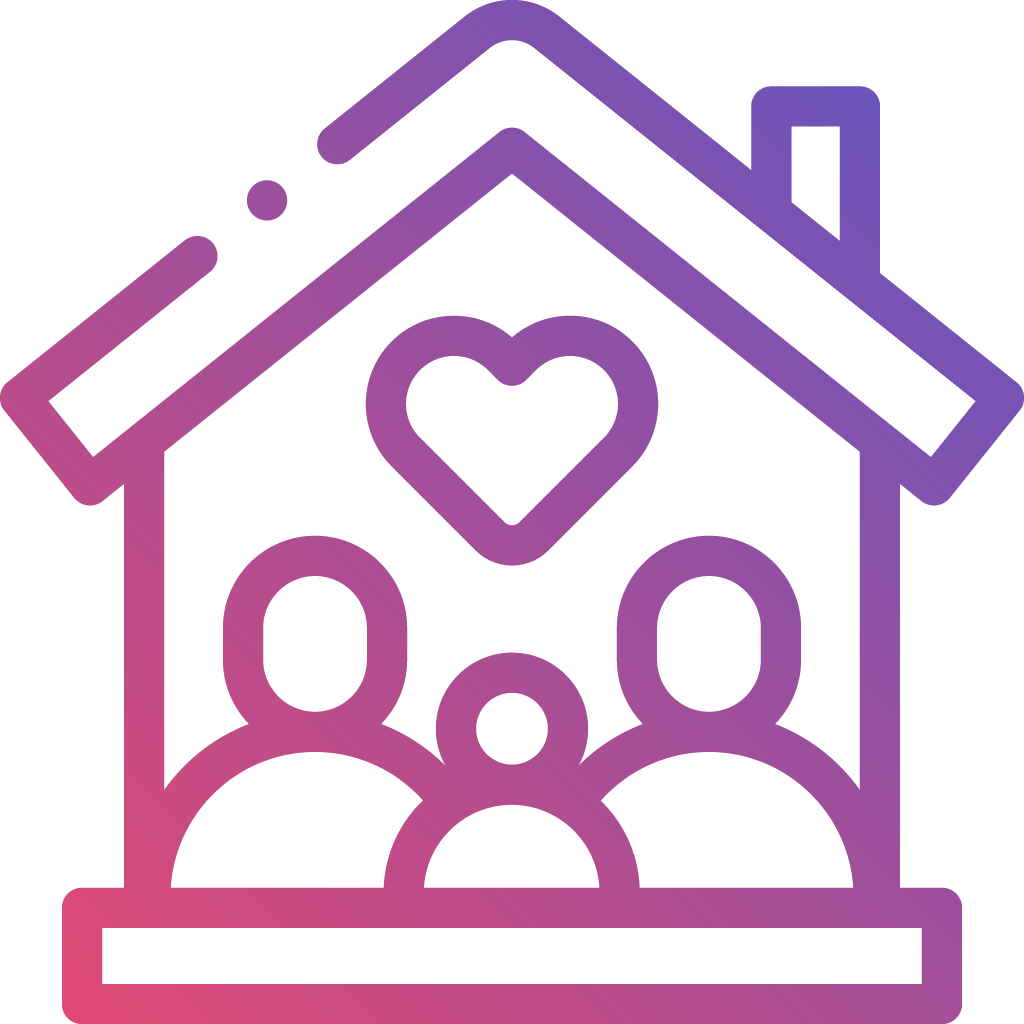Understanding Adoption Vocabulary
Adoption is a journey that encompasses love, hope, and the creation of families. Read more on demystifying adoption terms. It’s a path where every word and phrase carries deep meaning and emotions. The language of adoption is a powerful tool that shapes the experiences of everyone involved, from birth parents and adoptive parents to the children whose lives are transformed forever.
In this comprehensive guide, we’ll navigate the adoption vocabulary to empower you with respectful and inclusive language and explore the significance of adopting the right words and phrases. As advocates for adoption, Adoption & Beyond believes that the language we use in adoption matters and it plays a crucial role in creating an environment of empathy, respect, and understanding.
The Power of Language in Adoption
In the adoption journey, language is more than just a means of communication. It’s a reflection of our values, emotions, and intentions. The words we choose can impact perceptions, emotions, and the overall adoption experience for everyone involved. This guide aims to foster a deeper understanding of adoption vocabulary, encourage positive language, and promote respectful and inclusive conversations.
Navigating the Vocabulary of Adoption with Confidence
Understanding the terms and phrases commonly used in adoption is essential for adoptive parents, birth parents, and the professionals who support them. Navigating this adoption vocabulary with confidence ensures that the journey is filled with respect, empathy, and support.
Adoption Terminology: A Closer Look
Adoption comes with its unique lexicon, a language that is important to comprehend for anyone involved in the adoption process. Let’s explore some key terms and phrases that define adoption and guide its various aspects.
Adoption Triad
The adoption triad refers to the three main groups involved in an adoption: the birth parents, the adoptive parents, and the adopted child. It acknowledges the interconnectedness of these parties and the shared experience of adoption.
Open Adoption
Open adoption is an adoption arrangement that allows for varying degrees of contact between the birth parents, adoptive parents, and the adopted child. Openness can include visits, letters, or occasional meetings, with the level of contact determined by all parties involved.
Birth Parents
Birth parents are the biological parents of the child who choose to make an adoption plan for their child’s future. They make the selfless and loving decision to provide their child with a stable and nurturing home when they are unable to do so themselves.
Foster Care Adoption
Foster care adoption occurs when a family adopts a child in the foster care system. It provides a permanent, loving home for children who have been waiting for adoption after experiencing temporary placement in the foster care system.
Closed Adoption
Closed adoption refers to an adoption where no identifying information about the birth parents or the adoptive parents is shared between the parties. This type of adoption is becoming increasingly rare due to the benefits of open adoption.
Home Study
A home study is a comprehensive evaluation of the prospective adoptive parents and their home environment. It assesses their suitability and readiness to provide a safe, loving, and stable home for an adopted child.
Finalization
Finalization is the legal process that completes an adoption. It usually takes place in court and results in a decree of adoption, which establishes the adoptive parents as the child’s legal parents with all associated rights and responsibilities.
Birth Certificate
A birth certificate is an official document that records the birth of a child. After the adoption finalization, an amended birth certificate is issued with the names of the adoptive parents instead of the birth parents.
Adoption Agency
An adoption agency is an organization or entity that provides services and support throughout the adoption process. They work with both birth parents and adoptive parents to facilitate adoption.
Post-Adoption Contact Agreement (PACA)
A post-adoption contact agreement (PACA), also known as an open adoption agreement, outlines the terms and conditions of contact between birth parents, adoptive parents, and the adopted child after the adoption is finalized. It may include visitation schedules, communication plans, and other arrangements.
Placement
Placement refers to the act of a child being entrusted into the care of prospective adoptive parents, whether through foster care placement or a direct adoptive placement.
Disruption
An adoption disruption occurs when an adoption process is halted before finalization. It can happen for various reasons and is a challenging experience for all parties involved.
Dissolution
Adoption dissolution is the legal process of ending an adoption after it has been finalized. It is a rare occurrence and usually happens in cases of severe issues or legal complications.
Adoptive Parents
Adoptive parents are individuals or couples who choose to adopt a child and provide a loving and nurturing home. They become the legal parents of the adopted child upon finalization.
Adoptee
An adoptee is an individual who has been adopted. This term recognizes their unique identity and experiences.
Biological Parents
Biological parents are the birth parents who have a genetic connection to the child but are not raising the child due to the adoption plan they’ve made.
International Adoption
International adoption involves adopting a child from another country. It often requires compliance with the U.S. and the child’s home country’s adoption laws.
Domestic Adoption
Domestic adoption is the process of adopting a child within your own country, whether through an adoption agency, a private arrangement, or foster care.
Stepparent Adoption
Stepparent adoption occurs when a stepparent legally adopts their spouse’s child, creating a formal parent-child relationship.
Termination of Parental Rights (TPR)
Termination of parental rights (TPR) is a legal process in which a court permanently ends a parent’s legal rights and responsibilities to their child. TPR is often a prerequisite for adoption.
The Significance of Adoptive Language
The words and phrases used in adoption have a profound impact on the experiences and emotions of everyone involved. They can foster a respectful and supportive environment or perpetuate misunderstandings and stereotypes. Using the correct and sensitive terminology is an essential step in creating a positive adoption experience.
Words to Describe Adoption
Adoption is a beautiful and loving way to build families. The language used to describe it should reflect this positivity. Let’s explore some words and phrases that embrace the joy and love that adoption brings.
Identifying Positive and Respectful Adoption Language
Adoption is about love, growth, and the creation of families. It’s important to use language that reflects these positive aspects. Adoptive parents should be described as parents and adopted children as simply children. Emphasizing the loving bonds created through adoption helps dispel any stigmatizing language.
Terminology That Celebrates the Formation of Families
The terminology used in adoption should celebrate the formation of loving families. Words like “chosen” and “loved” emphasize the deliberate and affectionate nature of adoption.
Alternative Phrases for “To Give Up for Adoption”
Historically, the phrase “to give up for adoption” has carried a negative connotation. It implies abandonment or lack of care, which is rarely the case in adoption. Using alternative, more positive phrases, is vital in changing the narrative.
Changing the Narrative: Moving Beyond Stigmatizing Language
Words matter, and the language we use shapes our perceptions. Choosing phrases like “to make an adoption plan” or “to place for adoption” empowers birth parents and recognizes the thoughtful, loving decision they’ve made for their child.
Empowering Birth Parents with Respectful Terminology
Birth parents should be honored and respected for their selfless decision to place their child for adoption. Empowering them with respectful terminology acknowledges their courage and love.
Providing Support for Birth Parents Through Language
By using language that empowers and supports birth parents, we can contribute to a more empathetic and inclusive adoption community. It’s essential to provide resources and language that foster understanding and respect for their choices.
What Is the Most Popular Type of Adoption?
Adoption is a diverse landscape with various pathways to building families. Understanding the most popular types of adoption and the factors contributing to their popularity is crucial for anyone considering adoption.
Exploring Adoption Preferences and Trends
Among the various types of adoption, domestic infant adoption is one of the most popular choices for adoptive parents. This preference can be attributed to the potential for early bonding with the child and the ability to provide a stable and loving environment from infancy.
Domestic vs. International Adoption
Domestic and international adoptions are two of the most common forms of adoption. Domestic adoption involves adopting a child within your own country, while international adoption entails adopting a child from another country. The choice between these two options depends on various factors, including personal preferences and the desire to provide a home for a child in need.
How Language Reflects Adoption Choices
The language used in adoption conversations often reflects the popularity of different adoption forms. Understanding the significance of language is part of the respectful and inclusive language principle, one of the five core adoption principles.
What Is the Formal Definition of Adoption?
Adoption, in its formal definition, represents the legal and emotional aspects of the process. It’s important to recognize that adoption is not just a legal act but a lifelong commitment to caring for a child.
Clarifying the Legal and Emotional Aspects of Adoption
Adoption is more than a legal procedure; it is a profound emotional journey. It represents embracing a child into one’s family and providing a loving and nurturing environment. Recognizing the legal and emotional dimensions of adoption is vital for adoptive parents and birth parents alike.
The Act of Adopting and Creating a Family
Adoption is a beautiful act of creating a family through love and commitment. It is the realization of a lifelong dream for many adoptive parents and a selfless choice by birth parents to provide their child with a loving home.
Recognizing Adoption as a Lifelong Commitment
Adoption is a lifelong commitment that extends beyond the legal process. It encompasses raising and nurturing a child and ensuring their well-being. It’s a journey of love and devotion.
The Impact of Adoption Vocabulary
The words and phrases used in adoption conversations have a profound impact on the experiences of all parties involved. Recognizing and embracing the significance of adoption vocabulary is an essential step in creating a supportive and understanding environment.
How Language Shapes Adoption Experiences
The language of adoption shapes the experiences and perceptions of everyone involved. Positive, empathetic, and respectful language fosters a nurturing environment while stigmatizing or negative language can perpetuate misconceptions and misunderstandings.
Promoting Honest and Inclusive Conversations
Honest and inclusive conversations are essential in adoption. Using respectful language encourages open dialogue and fosters a supportive community where everyone can share their experiences and challenges without fear of judgment.
Fostering Respect and Empathy in Adoption Relationships
Respect and empathy are at the core of positive adoption relationships. By using language that promotes these values, we can create a compassionate and understanding adoption community. Respectful language empowers all parties involved and recognizes their unique journeys and choices.
The language of adoption is a powerful tool that can shape perceptions, emotions, and the overall experience of adoption for everyone involved. By understanding and embracing respectful and inclusive language, we can create an environment of empathy, respect, and understanding in the adoption community. Adoption & Beyond, as an advocate for building loving families through adoption, is here to provide guidance and support every step of the way. By recognizing the significance of adopting the right









